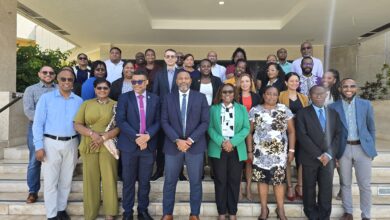There is an urgent need for Caribbean territories to review it educational systems and policies, with greater focus on developing the skills and techniques for creative thinking and adaptation.
So says, Trinidad’s Tertiary Education and Training Minister Fazal Karim, who believes that the region’s traditional method of thinking cannot suffice in a growing information age and technological world.
Karim highlighted the crucial role that education and culture could play in encouraging innovation, and the necessity for a new skill set for competitiveness and development.
During the recent opening ceremony of the 24th meeting of the Council for Human and Social Development (COHSOD) that focused on education and culture, Karim noted that Caribbean leaders must pause to address this important issue that is fundamental to the sustainable development of the region composed of small, vulnerable economies.
“The economic woes currently experienced can be linked to a multiplicity of causes and the solutions are no less complicated. What is clear, however, is the increasingly global and complex environment in which we operate.”
Karim pointed out that based on the economic, social and environmental challenges facing the Caribbean, the only sustainable path to development is grounded in the region’s ability to be creative, innovative and competitive in implying commitment to knowledge development.
He stated that a defining feature in the global knowledge economy is the centrality of Information Communication Technology (ICT) embedded within the education system which has reshaped all aspects of the Caribbean life.
Karim said there is a great awareness of the importance of investment in highly skilled workforce through education and training within this context.
“It is important to note that employers are continually changing and the mere accumulation of skills and knowledge is no longer sufficient as these can become quickly outdated,” the Trinidadian minister said.
Karim stressed that what is more imperative is the ability to adapt, relearn and seek creative solutions and ways of doing things. This, he said, will determine the value of an employee, emphasising the importance of digital literacy, laptops in schools, vocational education and ICTs.
According to Karim, he was heartened at the commitment of University of Trinidad and Tobago to the Caribbean Examination Council (CXC) in development of a new curriculum in these areas.
Only last week, Trinidad signed a contract with the largest software company in the animation industry. Karim said the region needs a greater focus on entrepreneurship and “what a better way to do this than promoting young animators in the world of entertainment”.
A critical role also exists for the private sector in skill identification and in supporting career development through job fairs in science, technology and the creative arts.
Karim applauded the regional policy on Prior Learning Assessment and Recognition (PLR) which was approved at the recent COHSOD. This policy will be undertaken through industry development and competency standards.
Some 62 standards were approved at the COHSOD meeting.
The tertiary education and training minister related that major assets for a regional economy is not different from what is required around the world which is skilled workers at the technical and managerial levels who are adaptable and creative with good attitudes towards lifelong learning and creativity. This is a precondition for innovation that will lead to the development of new products and services and is a key determinant in the success of schools and businesses.
Among the key components Karim identified in the quest towards competitiveness was a greater focus on entrepreneurship, an examination of the educational and pedagogic techniques to ascertain whether it was relevant in the current digital milieu, and the development of “muscles” within national education systems for creative and innovative thinking.






